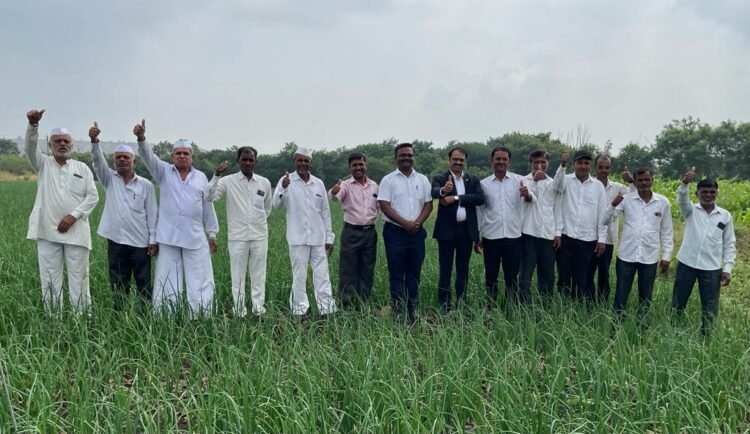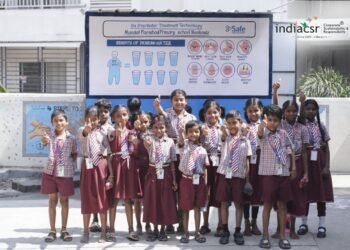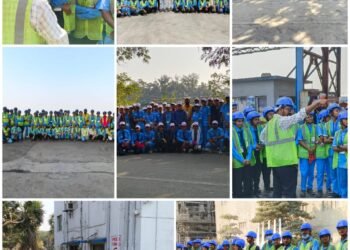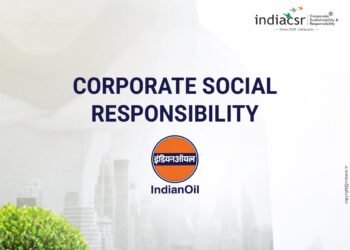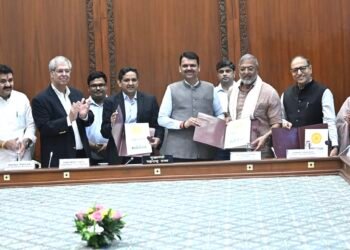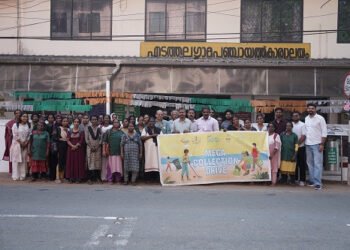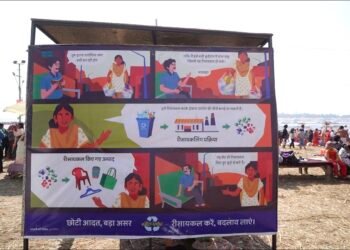The CSR policy of TVS Motor Company Limited reflects the Company’s commitment to contributing to society as a responsible corporate entity and establishes guidelines and mechanisms for implementing programs that are beneficial to society, aimed at transforming and sustainably developing rural communities at large.

In the heart of Maharashtra, the Srinivasan Services Trust (SST) has been a catalyst for change in Pune’s rural landscape. Since 2011, the Srinivasan Services Trust (SST) has been a catalyst for change in rural Maharashtra, impacting over 20,000 individuals and 4,500 families. The Trust’s multifaceted initiatives span various domains, from addressing water scarcity to revolutionizing agriculture and empowering women.
In recent days, I had the opportunity to visit the Pune district of Maharashtra. I visited several villages in the district and saw how Srinivasan Services Trust (SST) is working on rural development under the aegis of corporate social responsibility (CSR). I met with several people in the villages, including women, farmers, and schoolchildren.
The article will discuss the company’s CSR approach and some of the projects that are really impacting the lives of the rural people of Maharashtra.
Firstly, I will explore the company’s approach to Corporate Social Responsibility (CSR) strategies, followed by an examination of how the company’s CSR division is contributing to the growth and development of rural communities in the Pabal region around 60 KM from Pune in Maharashtra. The Pabal region has been facing key social challenges including water scarcity, limited access to education and healthcare, and underdeveloped agricultural practices.
***

The TVS Motor Company
TVS Motor Company Limited is an Indian multinational motorcycle manufacturer headquartered in Chennai, Tamil Nadu, India. TVS Motor Company is the flagship company of the TVS Group, being the largest company of the group in terms of valuation and turnover. The Company registered sales of 35.13 lakh units of two-wheelers in 2022-23. The Company, in spite of headwinds, registered an all-time high turnover of Rs 26,378 Cr and an all-time high profit before tax of Rs 2,003 Cr, company’s Annual Report 2023 said.
TVS Motor Company is the world’s 4th largest two-wheeler and 2nd largest three-wheeler maker, serving over 50 million customers in 80 countries.

***
Corporate Social Responsibility (CSR)
The Company recognizes social responsibility as an integral and critical part of its value system. This policy encompasses the Company’s philosophy for giving back to society as a corporate citizen and lays down the guidelines and mechanism for undertaking socially useful programs for the transformation and sustainable development of the rural communities at large.
Corporate Social Responsibility (CSR) activities carried out by the Company in terms of Section 135 of the Companies Act, 2013. As of 31st March 2023, the Corporate Social Responsibility Committee consists of three Directors viz., M/s. Venu Srinivasan, T Kannan and R Gopalan. Venu Srinivasan is the Chairman of the Committee.
The Committee formulated and recommended a CSR Policy in terms of Section 135 of the Act, 2013 along with a list of projects / programmes to be undertaken for CSR spending in accordance with the Companies (Corporate Social Responsibility Policy) Rules, 2014.
***
Srinivasan Services Trust (SST)
The projects / programmes undertaken by Srinivasan Services Trust (SST) and other eligible Trusts fall within the CSR activities as specified under Schedule VII to the Act, 2013. Through its CSR arm, the Srinivasan Services Trust (SST) the Company has been successfully driving positive change in rural communities in the areas of Health, Education, Environment, and Economic Empowerment.
CSR activities have already been textured into the Company’s value system through Srinivasan Services Trust (SST), established in 1996 with the vision of building self-reliant rural community. Over 27 years of service, SST has played a pivotal role in changing lives of people in rural India by creating self-reliant communities that are models of sustainable development.
SST has a matured model centred on community participation in all its projects. It also brings the practices of Total Quality Management (TQM) to cooperatives and Self Help Groups (SHGs) empowering them to improve quality. This allows them to find newer markets, better prices and hence enabling local job creation and enhanced prosperity in a sustainable manner.
According to the company, So far, across the working areas of SST, more than 60,000 women have been organized into SHGs, 2,500 village government infrastructures have been repaired and renovated and 350 water conservation projects including desilting of tanks and irrigation channels have been implemented.
***
CSR Funds
Based on the recommendation of the CSR Committee for the year 2022-23, the Board has approved the projects/programs carried out as CSR for an amount of Rs. 19 Cr for undertaking similar programs/projects constituting more than 2% of the average net profits of the Company, made during the three immediately preceding financial years, towards CSR spending for the financial year 2022-23 and the Company has met the CSR spending through SST, the company Annual Report revealed.
CSR follows an integrated, holistic and participatory approach to village development, and women empowerment, working very closely with the communities and the Government for sustainable development in villages.
***
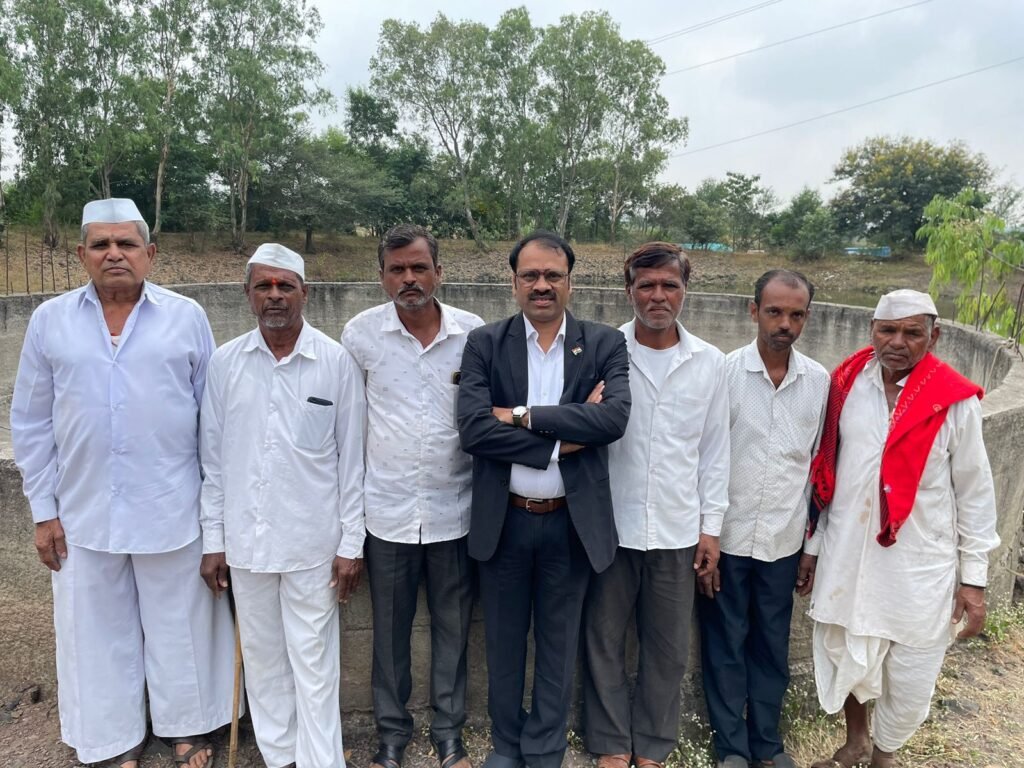
Empowering Rural Maharashtra: A Decade Journey of Sustainable Development
The Srinivasan Services Trust (SST), the social arm of India’s leading automobile Company, has been a beacon of transformative change in Maharashtra’s rural landscapes. SST began its operations in Maharashtra in the year 1996, initially concentrating on refurbishing infrastructure and buildings in the early years.
Over the past 12 years, SST’s initiatives have touched the lives of 20,000 individuals and 4,500 families across 114 villages in the Pabal cluster.
“Their vision focuses on partnering in the transformation of rural communities by empowering people to achieve sustainable development. Their mission extends to making over 20,000 villages in India sustainable and self-reliant, collaborating with the government and like-minded organizations to create a prosperous rural India.”, the company informed India CSR.
Their multifaceted approach encompasses women’s empowerment, agricultural advancement, education, and environmental sustainability. SST’s initiatives, ranging from nurturing Self-Help Groups to revolutionizing agriculture and infrastructure development, have not only uplifted living standards but also set a benchmark for holistic rural development, making a substantial difference in the lives of the rural populace in Maharashtra.
Here, I will detail the significant elements of social progress in the region and highlight key initiatives.
Diverse Focus Areas and Progressive Milestones
Interventions of SST in the Pune cluster encompass various domains. Women empowerment initiatives have led to the formation of over 300 Self-Help Groups (SHGs), engaging 3500 women and facilitating over 5 crores in bank loans and 2000 income-generating programs. In agriculture, the foundation’s efforts have transformed rainfed agriculture, benefiting over 2500 farmers through awareness programs, hands-on demos, and individual guidance. Livestock management has been revolutionized with over 3500 farmers benefiting from SST’s programs.
Infrastructure development has seen the renovation of over 45 anganwadis and 40 schools, while watershed management initiatives have rejuvenated water bodies, benefiting over 2500 farmers and raising water tables in the region. Additionally, the foundation’s unique projects like the Silage Project, Maachis Mukt Shivar (Burning-Free Agriculture), and Magic Soak Pit have furthered environmental sustainability and improved living conditions in these rural areas.
Here’s a closer look at some of these transformative projects in Maharashtra:
From Water Scarcity to Prosperity
With the aim to find a solution Pune’s Pargaon village drinking water problem, Srinivasan Services Trust (TVS SST) initiated a de-silting project in 2016, deepening the pond by 15 feet, significantly increasing its water storage capacity. The silt removed from the pond was distributed to farmers, and it improved soil fertility. With the project’s success, the problem of water shortage became a thing of the past.
The village also started pisciculture in the pond, generating additional income for village development. Pisciculture in the pond added income for Gram panchayat, profits of around Rs. 25,000 after each seasonal sale. This transformation showcases the power of community-driven initiatives in addressing water-related challenges and fostering sustainable livelihoods.
Bringing the Youth Back to Modern Age Agriculture and Livestock
In 2019, the TVS Srinivasan Services Trust (SST) introduced a Silage technique for livestock farmers in the region Silage is an innovative strategy that helps preserve green feed for livestock during the dry season, ensuring financial stability for farmers and maintaining the productivity of milch animals. This innovative technique has empowered over 3000 individuals in the region.
With the aim to extend modern & organic agricultural practices to rural communities, and goal to empower the youth in the region, SST’s intervention enabled Akshay Walunj, a 25-year-old farmer from Wadgaon Pir village in Pune, to reverse migrate from his industrial job to agriculture and livestock farming. With 3.5 acres of land and 10 cattle, including 5 cows; Akshay was more inclined towards staying close to his roots and taking forward his ancestral livelihood. Today, Akshay earns close to INR 25,000 pm from his livestock businesses.
On the other hand, SST empowered 27-year-old Avinash Borade from Kanhur Mesai village in Pune (who was at a low-paying job) to become a livestock entrepreneur (Silage making). Over the last 02 years, with support from SST, Avinash has evolved from earning INR 8000/INR 10000 per month to making the same amount on a weekly basis.
Driven by the need to support his family, 25-year-old Onkar Jojare from Wadgaon Pir village resorted to working as a driver, transporting agricultural commodities such as vegetables. Unfortunately, his average earnings of INR 5000 /INR 6000 per month was not adequate to sustain family. Onkar managed to maintain a small dairy business, owning only 2 to 3 cows and living in a modest house.
However, SST’s Silage technique, Magic soak pit and livestock awareness programs, enabled Onkar to expand his diary farming business. Today, Onkar earns a monthly profit of approximately INR 30,000 to INR 35,000. He is also a proud vehicle owner and recently constructed a new house.
Nikhil, a 27-year-old farmer in Pune, Maharashtra, exemplifies the transformation possible in agriculture and livelihoods with SST’s support. Previously struggling with limited irrigation on his 8 acres, desilting by SST rejuvenated his non-cultivable land, enhancing soil fertility, yield, and profits.
Potato farming, for instance, saw profits soar from Rs. 30,000 to Rs. 70,000 per acre. Nikhil reinvested his earnings into sustainable farming practices, including drip irrigation, farm ponds, and solar power. SST’s interventions impact not only him but also small farmers, fostering sustainable agriculture and rural development.
Augmenting India’s agri-economy
SST initiated the “Macchis Mukt Shivar – Organic Composting” project in Pune, Maharashtra, to replace the harmful practice of burning crop residues with organic composting. Over 120 demonstrations reached 750 farmers, promoting the conversion of crop residues into organic fertilizer. One success story is Vaishali Pokhrakar, a Vadgaon Pir village farmer, who embraced organic composting after SST introduced the concept in 2022.
Her adoption led to improved agricultural practices and outcomes, reducing reliance on harmful burning practices. SST’s sustainable agriculture initiative has not only transformed individual farmers but also contributed to a broader shift toward environmentally responsible farming.
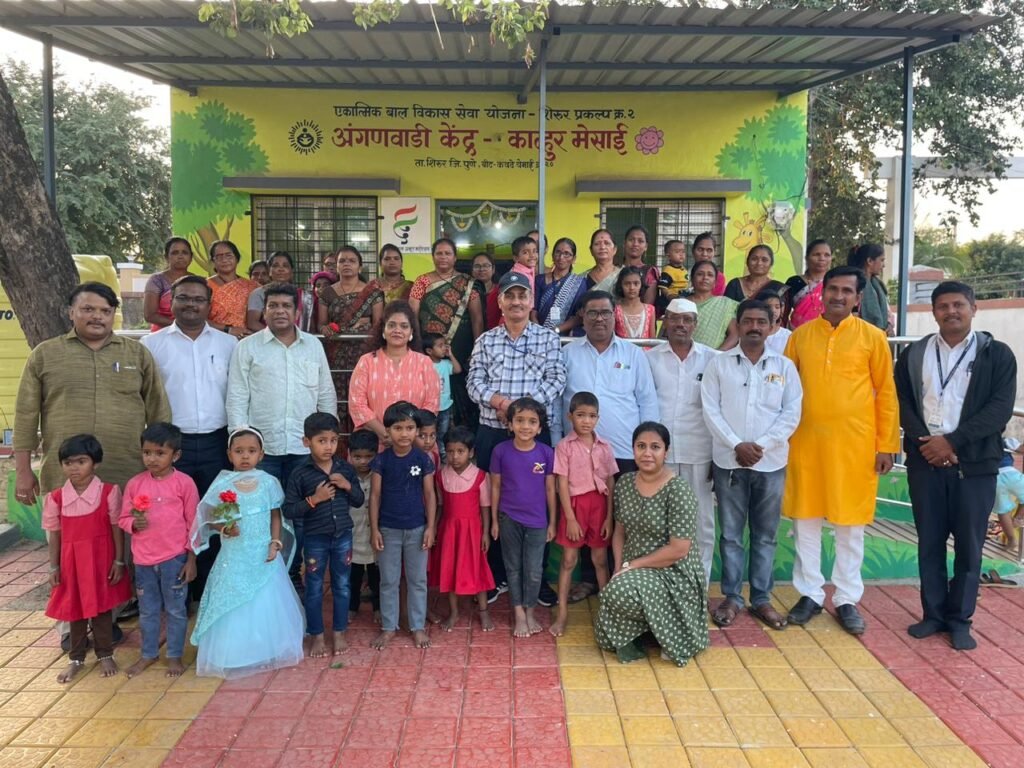
Maximizing socio-economic dividend for women through SHGs
Jyoti Walunj’s life was once defined by poverty and limited opportunities in Wadgaon Pir village, Maharashtra. With the support of SST, she joined a Self-Help Group (SHG), and discovered her passion for tailoring. In 2021, she opened her own successful petti shop, specializing in women’s wear. Jyoti now earns INR 3000/4000 monthly, managing her shop independently and improving her family’s financial stability. Her story exemplifies the transformation from farm laborer to successful entrepreneur.
Rubina Mujawar, a resident of Pune’s marginalized community, faced financial constraints while relying on her low agricultural income and her husband’s modest tailoring earnings. She joined an SST-backed self-help group (SHG) and, in 2021, established a thriving bangle store in her village. This new venture quickly became a community focal point, elevating Rubina’s monthly earnings to 3,000-4,000 rupees, significantly improving her family’s living conditions. Beyond the financial gains, Rubina has evolved into a social leader, inspiring her community and showcasing the power of SHGs in empowering women to build a brighter future.
SST initiated a transformative mission to promote sustainable agriculture practices in Pur, Pune, through their “Combined Activities for Maximized Agriculture Efficiency.” Shrinath Self-Help Group (SHG) embraced organic farming under SST’s guidance in 2019, leading to remarkable improvements. They observed enhanced crop quality, with crops growing taller, healthier, and displaying unprecedented freshness. Moreover, their production of coriander increased from 800 to 1500 sets per acre, resulting in a substantial rise in income from 8,000 to 15,000 rupees per acre.
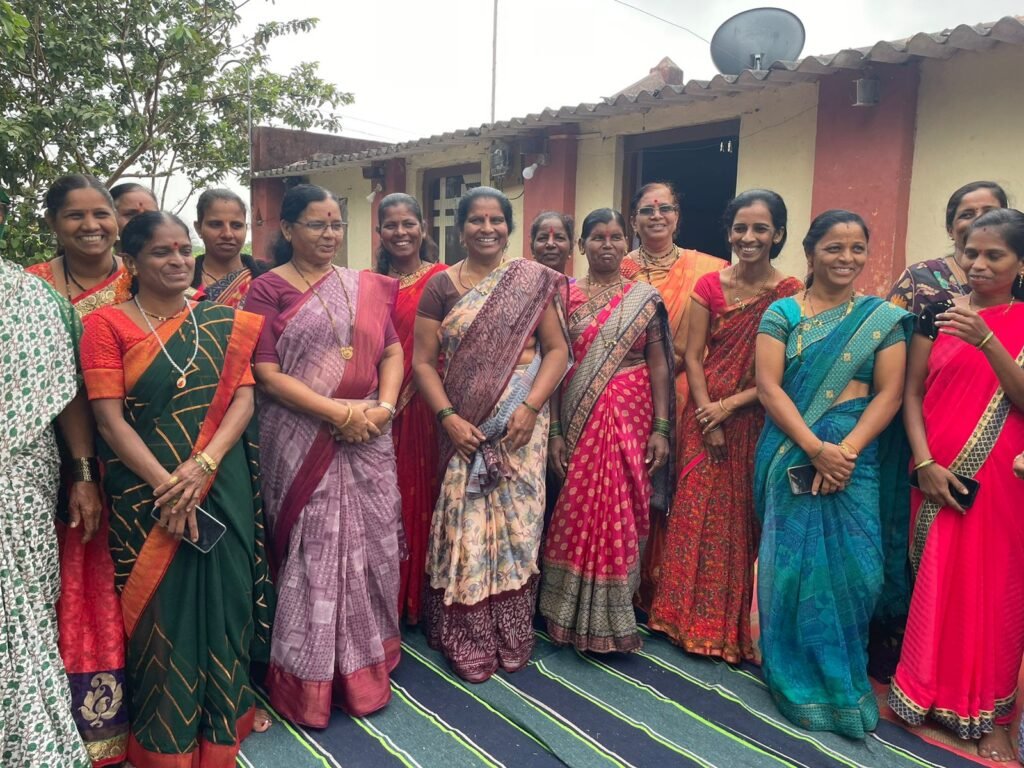
Transforming education through critical infra/social support
SST tackled a critical issue in Wadgaon Pir, Pune, by constructing a new toilet unit at a local high school. The existing facilities, particularly affecting female students and staff, were inadequate, unclean, and poorly maintained. This dire situation caused lower attendance, health problems, reduced confidence, and limited participation in school activities, especially during menstruation. In 2021, SST stepped in, building a modern, and hygienic toilet unit. The results were transformative: increased confidence, improved attendance, better health, and active engagement in school activities.
In a Pune village, the TVS Srinivasan Services Trust undertook a holistic transformation of an Anganwadi center to enhance early childhood education, health, and nutrition. The initiative aimed to create a safe, nurturing learning environment while improving children’s health and overall development. SST, drawing from its 15 years of community engagement, consistently improved Anganwadi centers, with a significant transformation occurring in Kanhur Mesai village in 2021-22.
(Rusen Kumar is well-known CSR and Sustainability journalist in India.)

